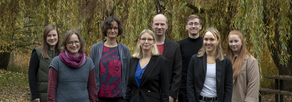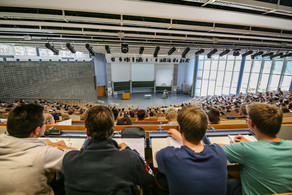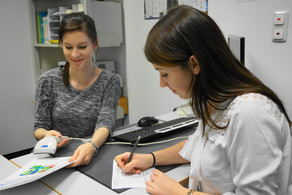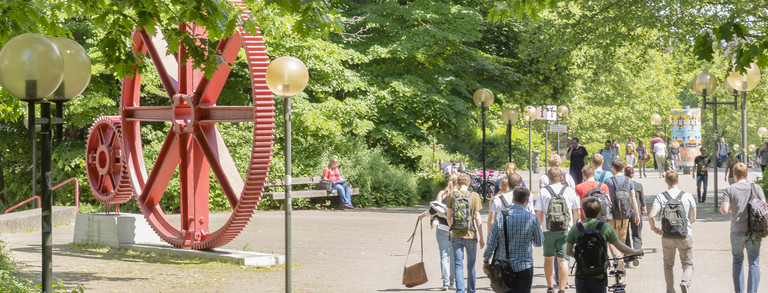Parents of children with autism spectrum disorders: demands, burdens and resources
Autism Spectrum Disorders (ASD) lead to lifelong limitations in almost all areas of life, which cannot be eliminated or fully compensated for by supportive measures. However, targeted support based on the support needs of those affected and their families can improve the fit between people with ASD and their environment and thus improve their quality of life and that of their families. A key role is played by the parents, who as the primary caregivers shape the living environment of their child. How the parents cope with the demands resulting from their child's autism spectrum disorder therefore not only has an impact on their own well-being, but is also a key factor in how well they manage to support their child in its development and to create an optimal living environment for him.
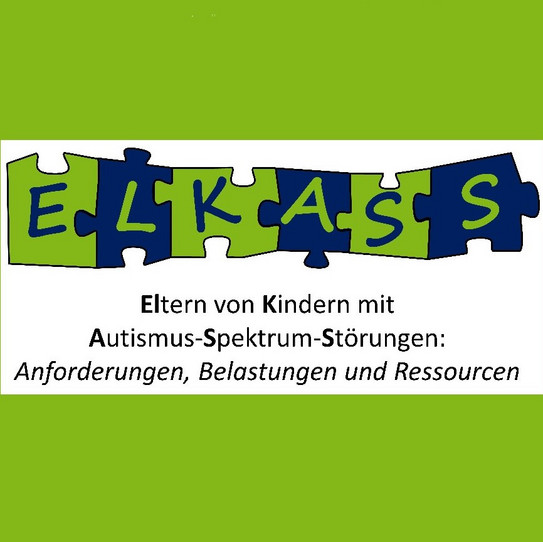
The research project therefore starts with the parents of children, adolescents and young adults with ASD. The aim is to gain information about the extent to which pedagogical-therapeutic support measures contribute to strengthening the parents' resources to cope with the demands and to reducing their burden. The research project pursues four questions:
- Which demands arise for the parents from the child's symptoms?
- To what extent do these requirements place a burden on parents?
- What resources can parents draw on to meet the demands?
- To what extent does the pedagogical-therapeutic support of the families contribute to strengthening the parents' resources and reducing their burden?
Further informations
You can find an overview of ELKASS publications and conference contributions under ELKASS publikationen and conference contributions.
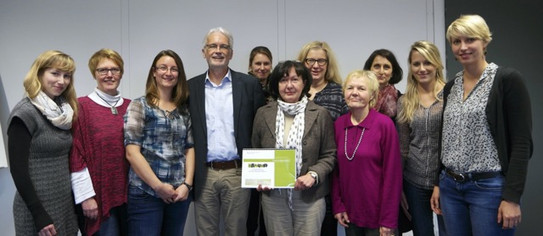
ELKASS-Workshop on 10. November 2015
On 15. November 2015 start the research project „Eltern von Kindern mit Autismus-Spektrum-Störungen“ (ELKASS).
It is carried out by the Research Unit of Rehabilitation Psychology (Prof. Dr. Heinrich Tröster, Christin Oberfeld, Sarah Lange und Stefanie Brimmers) in cooperation with ten autism therapy centers in Germany.
In a two-year longitudinal study, it is examined what demands and burdens arise for parents of children with autism spectrum disorders, what resources the parents use to cope with their tasks in the care and upbringing of their child and to what extent the therapeutic support of the autism therapy centers helps to ease the burden on parents and strengthen their resources.
Christin Oberfeld is responsible for project coordination. At the start of the project, the representatives of the participating autism therapy centers met with the project staff at the TU Dortmund on 10 November 2015 and coordinated the planning for the upcoming longitudinal study.
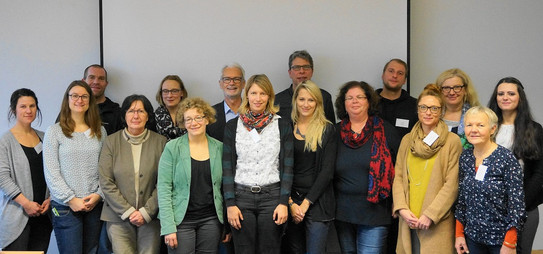
ELKASS-Workshop on 15. November 2016
On 15 November 2016, the 2nd workshop of the ELKASS research project took place at the TU Dortmund.
One year after the start of the research project, the representatives of the ten autism therapy centers involved in the ELKASS research project met with the project staff at the TU Dortmund to find out about the status of the research project and the first results of the research project as well as the further perspectives of the cooperation.
At the one-day conference, the project team members Christin Oberfeld (project coordinator), Dr. Sarah Lange, Stefanie Krawinkel and Prof. Dr. Heinrich Tröster (project manager) presented the first results of the research project. A cross-sectional study of 182 parents of adolescents with autism spectrum disorders was completed in the first year. As part of the cross-sectional study, the parents of young people cared for in the ten cooperating autism therapy centers and their therapists were interviewed. From the results of the survey, a specific requirement and stress profile could be drawn up, which shows which tasks parents of children with autism spectrum disorders have to cope with and which stresses result from this.
A second focus of the conference was the currently ongoing evaluation study. To evaluate the work of the autism therapy centers, all parents and therapists of children and young people who begin therapy in one of the ten autism therapy centers during the survey period are surveyed in a two-year longitudinal study. The longitudinal study is intended to examine to what extent the pedagogical-therapeutic support measures of the autism therapy centers contribute to reducing the burden on parents and to strengthening their resources to cope with the demands. At the conference, preliminary results for the first and second survey time of the longitudinal study were presented and discussed with the participants.
Further studies on the subject of autism spectrum disorders were presented as part of a poster presentation. With their posters, the Master's students Anna Koschik and Teresa Mann presented the results of their Bachelor's theses on the burden of parents of children with autism spectrum disorders.
The 2nd workshop of the ELKASS research project proved to be a good opportunity for a professional exchange between research and practice for all participants. For the research project, some suggestions for the differentiation and further development of the research concept arose in the discussion with the therapists of the autism therapy centers. The representatives of the ATZ received suggestions for reflection on their practical support concepts.
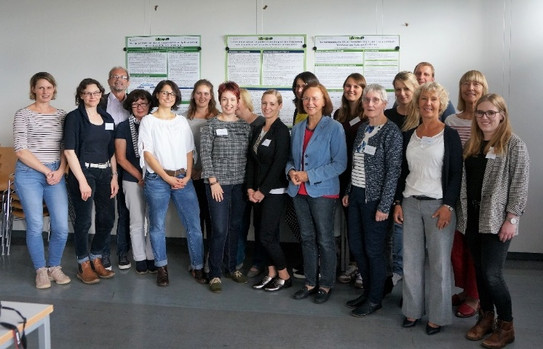
ELKASS-Workshop on 13. September 2019
On September 13, 2019, the final conference of the research project "Eltern von Kindern mit Autismus-Spektrum-Störungen" (ELKASS) took place at the TU Dortmund.
At the end of the research project, the representatives of the ten autism therapy centers involved in the ELKASS research project met with the project team from the TU Dortmund. At the conference, Prof. Dr. Heinrich Tröster (project management), Dr. Sarah Lange (project coordinator) and Teresa Mann presented the main results of the research project. The practical significance of the results for working with families with children with autism spectrum disorders was then discussed with all project participants. The conference enabled a good professional exchange between research and practice and proved to be a round conclusion of the research project. We would like to thank everyone involved for the good cooperation.
People involved
Project management:
Prof. Dr. Heinrich Tröster
Project coordination
Dr. Sarah Lange
Employees
Stefanie Krawinkel, Dipl.-Psych.
Christin Oberfeld, M.A.
Teresa Sartor (geb. Mann), M.A.

